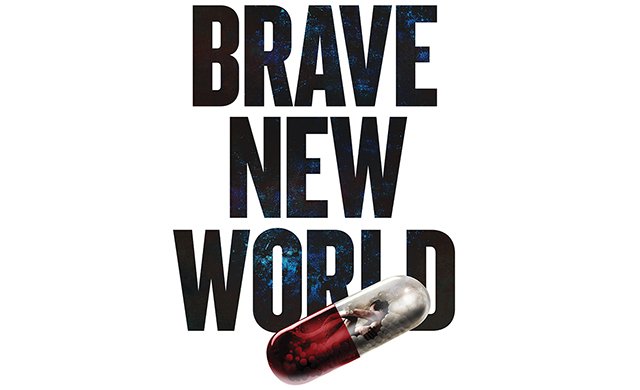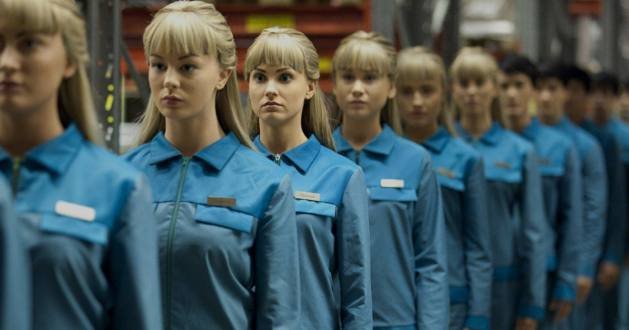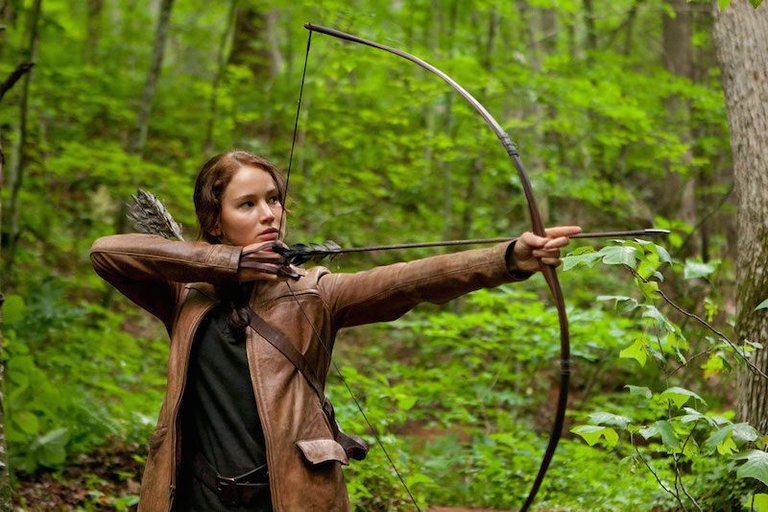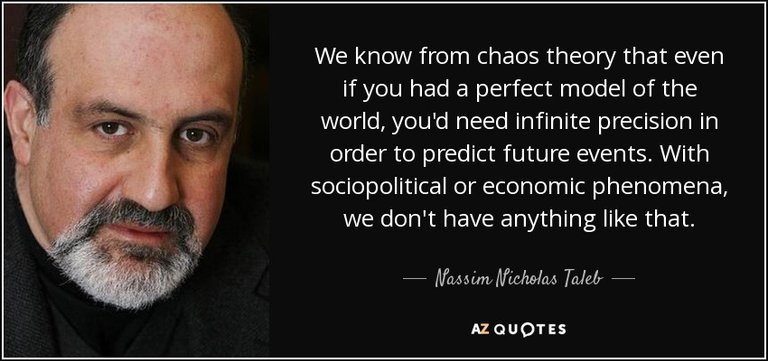
“We deal in illusions, man! None of it is true! But you people sit there, day after day, night after night, all ages, colors, creeds... We're all you know!
You're beginning to believe the illusions we're spinning here.
You're beginning to think that the tube is reality, and that your own lives are unreal. You do whatever the tube tells you! You dress like the tube, you eat like the tube, you raise your children like the tube, you even think like the tube! This is mass madness, you maniacs!” ― Howard Beale ; Network.
Except…
The tube is starting to crack.
Brave New World
Brave New World is a dystopian novel by Aldous Huxley that revolves around a futuristic society where all the governments in the world have merged into one world government (The World State) where every citizen’s entire existence is exclusively preordained to serve the state.
In that extremely popular novel, children are indoctrinated from an early age, and as they grow they are discouraged from expressing any sort of emotion throughout their lives. Family ties are forbidden as are romantic and spousal relationships, you are not allowed to love another human being except from your owner, Gov almighty.
“There will be, in the next generation or so, a pharmacological method of making people love their servitude, and producing dictatorship without tears, so to speak, producing a kind of painless concentration camp for entire societies, so that people will in fact have their liberties taken away from them, but will rather enjoy it.”― Aldous Huxley
Not all the story lines in Brave New World take place within the one world state, in fact, there are various communities that live outside of the system, in places called “The Savage Colonies” and that are mainly formed by former members of the dystopian society who refused to to live under the inhuman draconian rules of that one world government depicted in the novel.
Since there was no place for them in the metropolis, they then had to settle at the outskirts of the cities without any access to running water, electricity and any of the amenities or services that only one single entity can provide, the state.
Lord of the Roads
“One ring to rule them all, one ring to find them, one ring to bring them all and in the darkness we will bind them” ― Lord of the rings.
The rest of the society meanwhile are all kept docile and content in permanent state of submission, in part under the hypnotizing effect of a new drug called Soma.
Their lifestyles were extremely monotonous to say the least: Present yourself, press your clothes, comb your hair, and clock in.

At the end of the day, some TV dinner and a couple of blue pills and off you go – Blue pills meaning Soma, not Viagra – That’s the sad reality, the only reality of that futuristic society where everyone is born free but ends up leaving this planet without being permitted to express a single emotion or thought that were their own.
On the other side lie the mavericks, the round pegs in the square holes, those with a sense of curiosity and wonder, those who believed that there were more to the world, those who wouldn’t conform and wanted to experience more things.
Those who thought there is another way, that there is more to life than to serve the rulers.
The problem however, is that you cannot have free-thinkers in a collectivist pipe-dream.
So those mavericks were presented as losers as who had to take off and go rough it out in the woods.
Literally, roughing it in the woods.

In Brave New World those outcasts who lived off the grid, and could only survive on whatever they could fish, hunt or gather.
Which takes us to observation Numero Uno:
Living off the grid now – let alone a hundred years from now – can be done in a much more conformable way than depicted in the novel.
Solar power, wind turbines, water filters, aquaponics, permaculture… If those groups of outcasts were to live off the grid now (or in the future) no one would be sharpening sticks to hunt wild boar, that’s for sure.
And this is without talking about newer trends like 3D printing or the DYI revolution.
Furthermore, the novel has as a basic premise one where all the services would be provided by the one world government, and all products would be manufactured by the same entity as well.
Enter observation Numero Dos:
Instead of burdening people with red tape and heavy bureaucracy, more and more people are now offering the same services the state used to hold monopoly on, doing so by making life easier in the process.
Every service the government provides, you can find a much better product in the market. And this phenomenon is it’s becoming normalized, as the world seems to be moving towards the exact opposite direction that an absolute state monopoly on all goods and services.

Although we have to put a novel into context, Aldous Huxely wrote this in a time where thos communist ideas were not put in practice yet and many people though that centralization of power was the way to go.
In fact, many people hypothesized that Huxley named one of the main protagonists Marx, in honor to Karl Marx.
The same with naming Sarojini Engels after Friedrich Engels, Polly Trotsky after Leon Trotsky and Lenina Crowne after Vladimir Lenin.
Years later, not only Karl Marx’s doctrine failed, but it could never really convince enough people to adopt it, because as it turns out:
Nobody Likes Breadlines.
And now, let’s visit the third and most important point, Huxley’s main premise is that the entire planet turns into one giant dictatorship. Is that plausible?
I don’t know. Let’s see:
Every single dictatorship always tends to rely on two very important things, controlling the supply of information and two, removing the freedom of association.
First of all, for the goverment to have a complete and utter control over the supply of information, is that even in the realm of possibility? Any chances of that happening pretty much dissipated pretty when Gutenberg came around.
And now we have the internet
So Elvis has left the building, got inside the train, and the train has left the station.
I mean, that ship has sailed, sank and they made movies about it.
How can you stop that? Switching off the internet, other than that…
But here’s the funny part, if there is any cause that will unify people, even the most peaceful or apathetic individuals to go outside and riot, it’s separating them from their internet, their social media, their YouTube, their Netflix…
Do that and you'll have a revolution before the sun sets down.

The internet, like with the printing press was the game changer that no one has seen coming.
Speaking of which, the internet is an even more important factor for the second point.
Because to envision one humongous dictatorship controlling the entire planet, they must have humongous control over the population and avoid at all costs that people could have the ability to get together, online or otherwise.
Freedom of Association
Whether in The Rules by Rulers, or The Dictator’s Handbook or in any other study about the psychological aspect of dictatorships and why they ultimately fail, the reason number one is always that the dictators failed to successfully prevent people from getting together with other people.
In this day and age, we are more connected than any other generation in human history, and it’s fair to assume that we will be even more connected in the future.
Of course Huxley couldn’t predict the internet, not the peer-to-peer revolution, nor decentralization, nor crypto-currencies outside of politicians scope…
And this fact right here may just render the entire premise of Brave New World, a little short of unsustainable.
Whatever plans you think they had written in a prophecy a century ago, those must stand the test of the ever changing times.

brave new world and 1984 where my favorite reads in a long time.
https://archive.org/stream/ost-english-brave_new_world_aldous_huxley/Brave_New_World_Aldous_Huxley_djvu.txt
pictures and a nice story
Thank you!
one of my favorite reads!
You mean Brave New World? Yeah it's considered one of the best novels ever. :)
Great discussion of Huxley and what we can learn from these ideas. Thank you!
Thanks Tom, I was thinking to bring something new, or presented from a new angle.. I hope it was worth a read.
Thank you , very interesting article , nice photos !
Thank you!
You say that the advent of the internet allows for the decentralization of information and thereby prevents a totalitarian state. I disagree, for the censorship of information does not require total control and the accessibility of that information will always be competing against the entertainment side for peoples attention.
I think that Huxley keyed into a very prevalent idea, not that information would be suppressed but instead ignored in favor of media designed to trigger a dopamine response. Web design, advertisement, social media, consumption media, etc is all designed to maximize the pleasure centers of our brains to trigger habitual usage. This is contrasted by the drudgingly painful experience of researching a topic. A deep seeded feeling partially brought about through compulsory government schooling. For the majority of people who seem to be content with immediate satisfaction, the choice of the former over the latter is a completely reasonable one. Taken with the rise of "entertainment news" its easily more preferable to consume and feel good in the moment without considering the possibility of falsehood. Furthermore, there is a massive learning curve involved with decentralized and secure communication. Even if one saw the utility of Tor or uncensorable media like steemit, there is a barrier to entry involved to learn a side of the internet that is unnatural to the outsider. These things are serious advantages that an entity bent on controlling information has on its side. The mere existence of the internet does not make a level playing field.
As long as the mass majority of people remain content with constant consumption media Huxley's foreboding predictions may yet come true. We have collected a wealth of human knowledge and laid it at the fingertips of modern society, and yet... most would rather watch the latest LETS PLAY video.
Yeah, I think an independent grid would be the next step of decentralization.
After money, (cryptocurrencies). If some people could provide those utilities in a better manner they could win.
I have made a post, and will make some more posts on the actual methods of making a decentralized grid.
How interesting! Could you link it if you don't mind?
This can be made on a tiny community scale.
https://steemit.com/energy/@builderofcastles/a-solar-powered-electrical-plant-that-could-be-built-right-now-from-parts-on-alibaba
more to come.
Taking over the utilities would be a meaningless action.
I know a handful of people that actually know how to make electricity and make it flow. And I worked in that industry.
People are so ignorant about where their power, water and food come from.